I have no details, but that negotiations were going on all day – not with the Governor, where they broke down, but within the caucus. According to Hallenbeck, at least some of the focus returned to unhappy Dems – particularly over the impact on the education fund and the hit to the Current Use program. No word on who the 7 non-voters were and why they didn't put their votes where their mouths were. There may be perfectly good reasons, but that is a significant amount.
It seems, though, that House leaders were able to win back over some waverers, so perhaps the tweaks were worth it. I haven't had time to look over it, but below the fold are two documents from the Speaker's office, the first a longish one that summarizes the budget (its in very "go team!" terms, so you have to read through the rhetoric) and another that details the cuts.
More to come, but I want to highlight a couple things. One – the state personnel cuts are far from fully laid out. Most of them are itemized in a $14.7 million line called "State employee savings" under "Other Misc Cuts." This strikes me as a rather crude, even heartless way to write off so many people's livelihoods in such a scary economy. "State employee savings" sounds like a new banking plan, rather than what it really is. "Job reductions" would have been blunter, but less yucky.
Also within is a chart laying out the projected overall tax impacts on different income levels. Yes, the marginal rates are still dropped, but the budget makes the case (as you see below) that overall progressivity of the tax code is enhanced. I'm not sure what these numbers are based on, but hopefully there'll be more information to come.
This will get vetoed, but looking at those numbers, an override may not be out of the question. I'm looking at the "52" number, rather than the "91." It'll be telling to find out which 2 could be persuaded, and who exactly the missing votes are. As I say, if this is enough of a right-left balance within the caucus to override a veto, then all its weaknesses become strengths, and the new House leadership can come out of this smelling like roses after all. We'll see.
The files arrived from the House damaged in some way that's causing me to tear my hair out, so at present I'm forced to save them below as image files, rather than text.

Now this chart is a bit deceptively selective, as Shay pointed out this morning, along with some background as to who is falling on which side of what:
The leadership’s plan doesn’t take into account the increased taxes people will pay when they buy booze, tobacco, satellite TV, digital downloads and gas – or when it comes time to pay property taxes. Those taxes will go up under the Democrats’ plan. The governor’s original budget, it should be noted, would have raised property taxes by $65 million, and had more layoffs and program cuts, as well as plenty of fee increases (rather than gas taxes) to pay for repairs to roads and bridges.
A number of Progressive lawmakers, and liberal Democrats, do not like many aspects of the legislative leaders’ package – they argue the budget still puts much of the burden on low-income Vermonters, as well as others including the disabled, elderly and children…
…Of the 10 in the Senate who voted against it, five were Democrats: Sens. Doug Racine, Ed Flanagan, and Tim Ashe of Chittenden County joined Dick McCormack (Windsor) and Mark MacDonald (Orange) to oppose the plan.
Documents below:
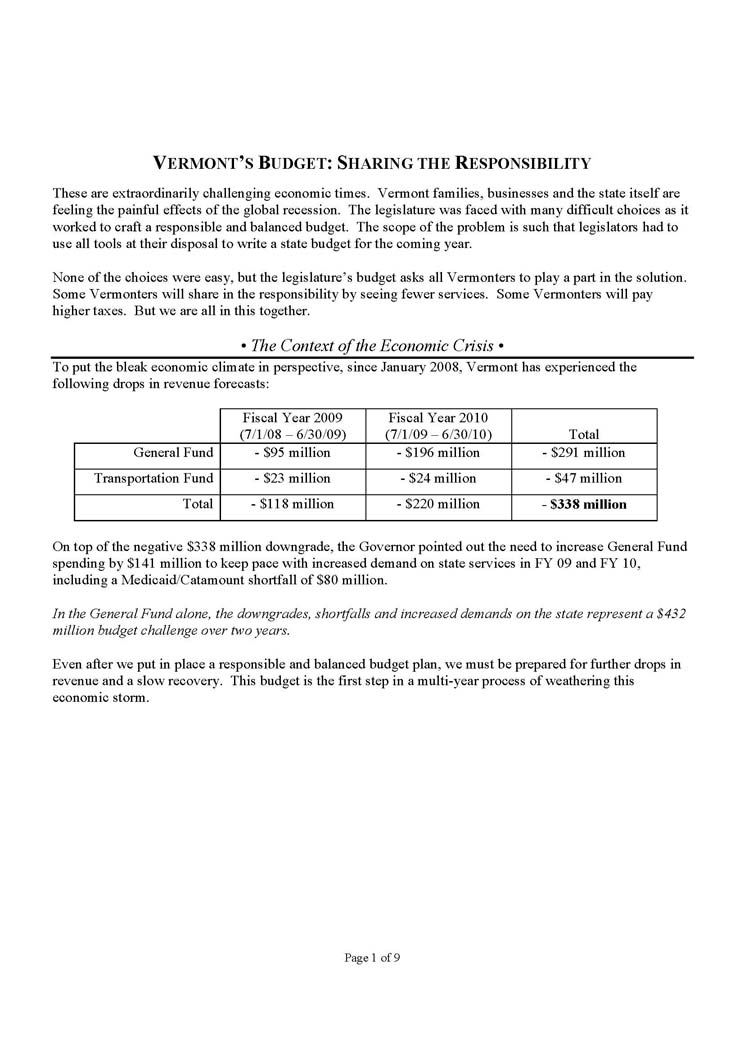
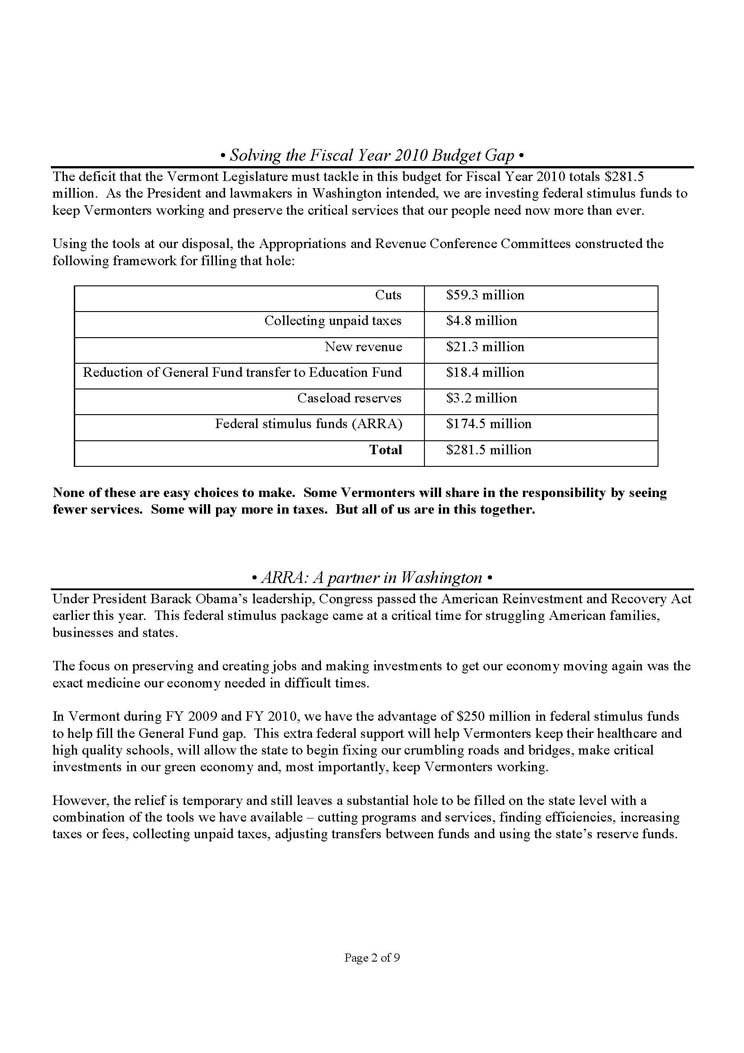
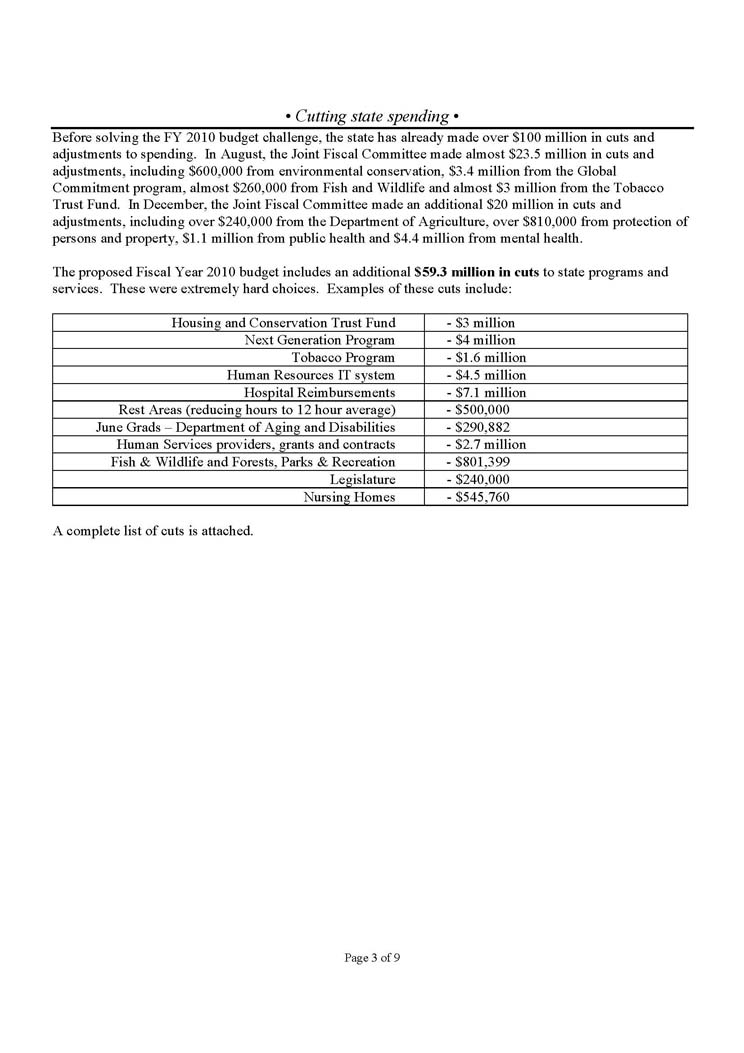
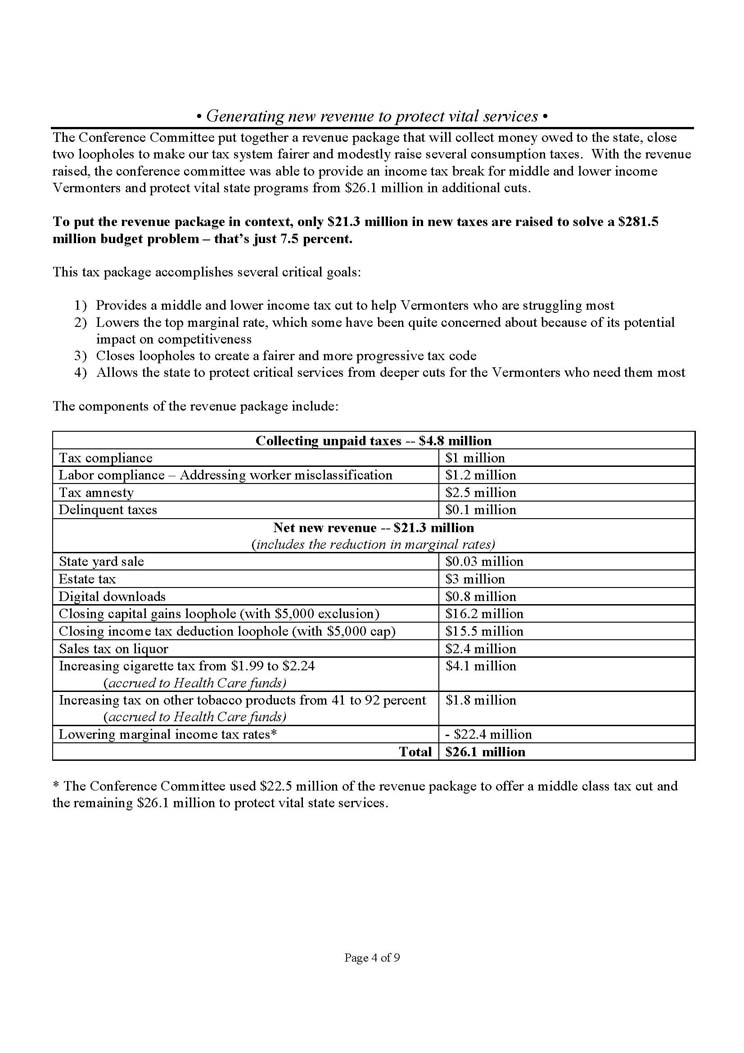
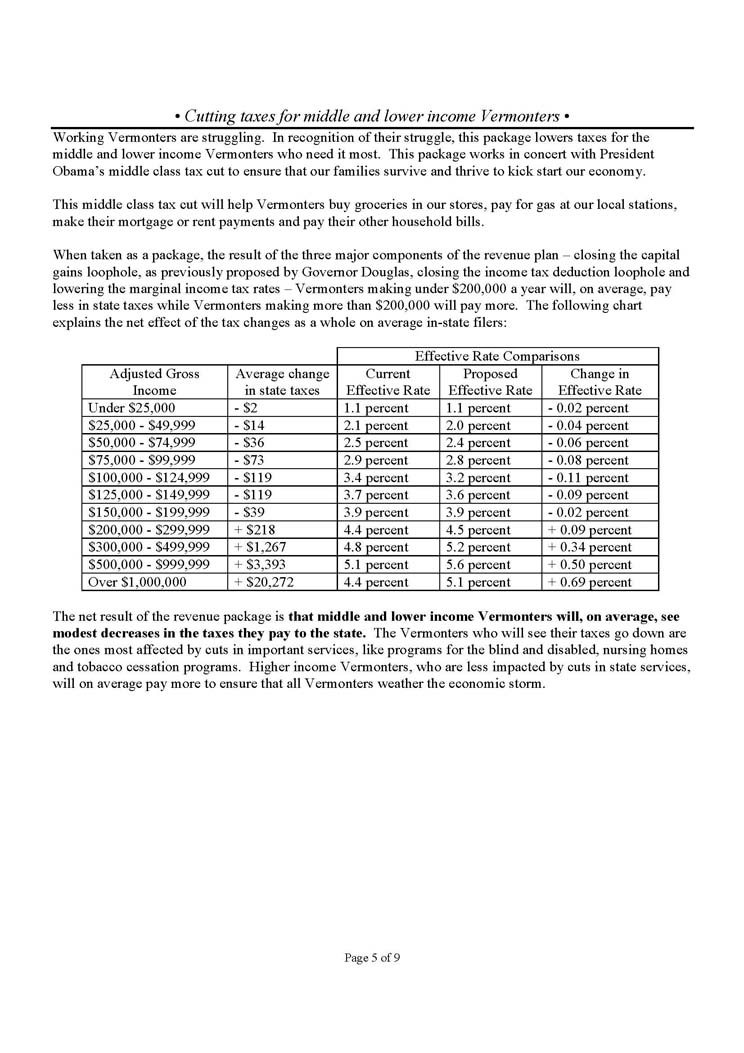
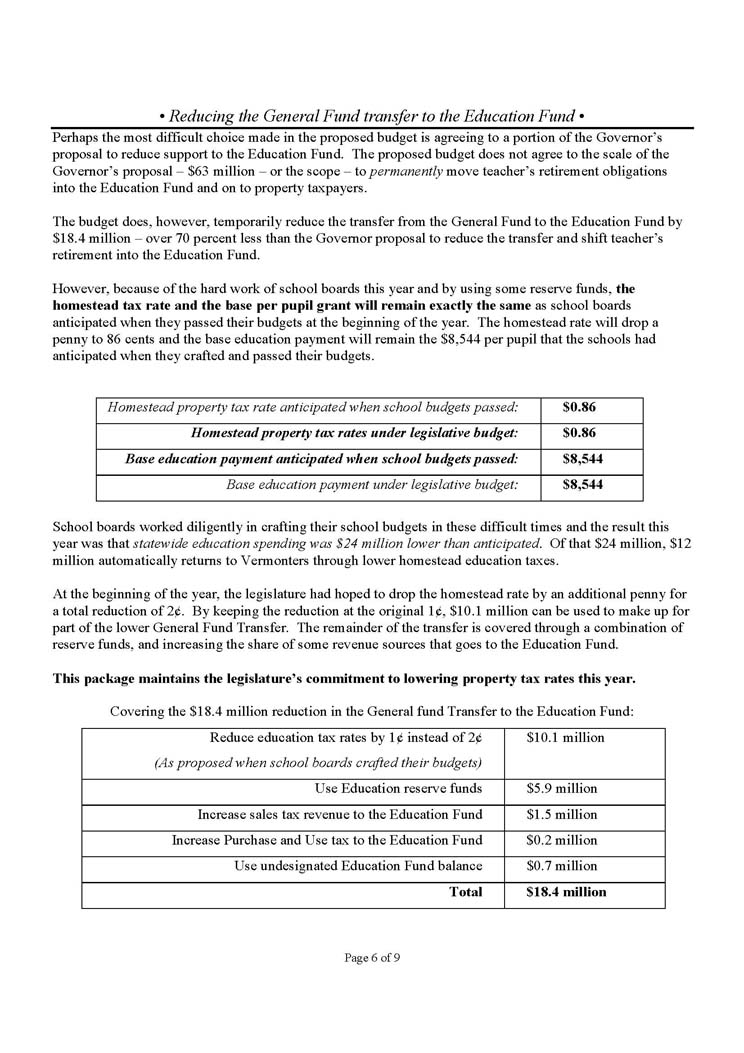

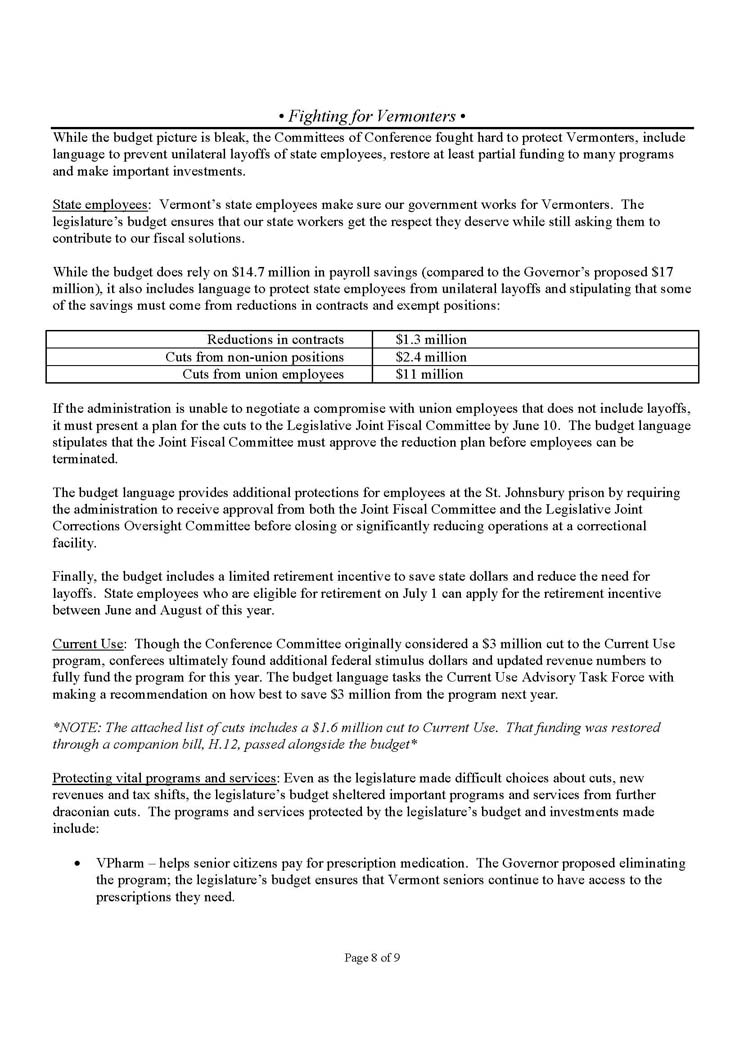
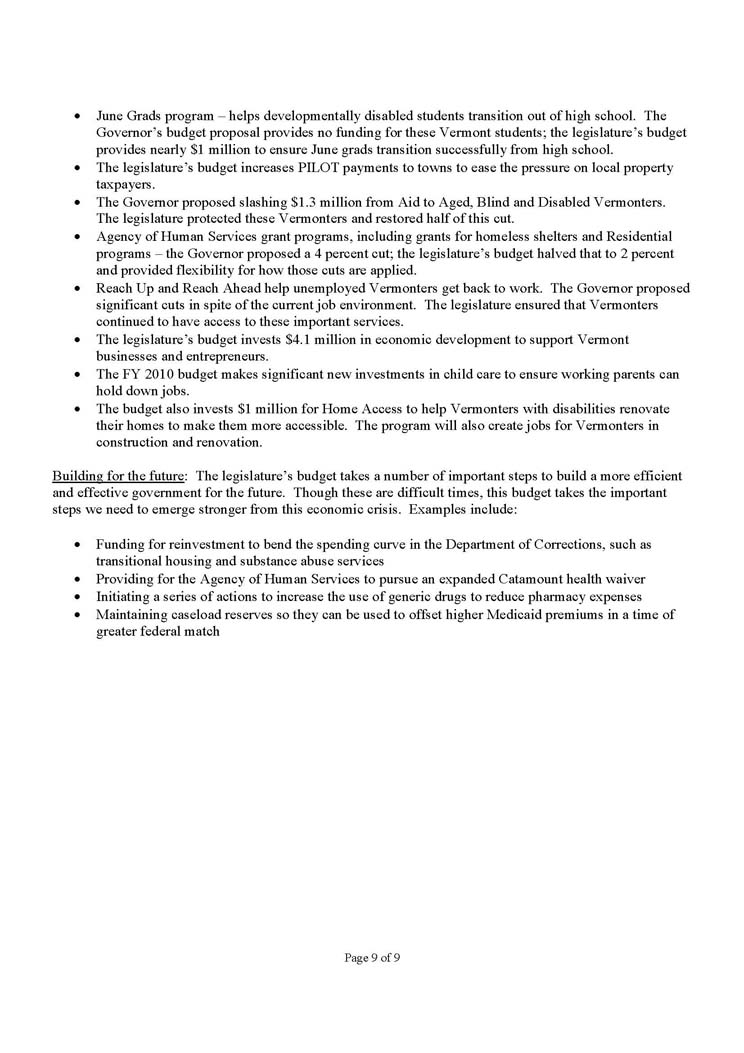
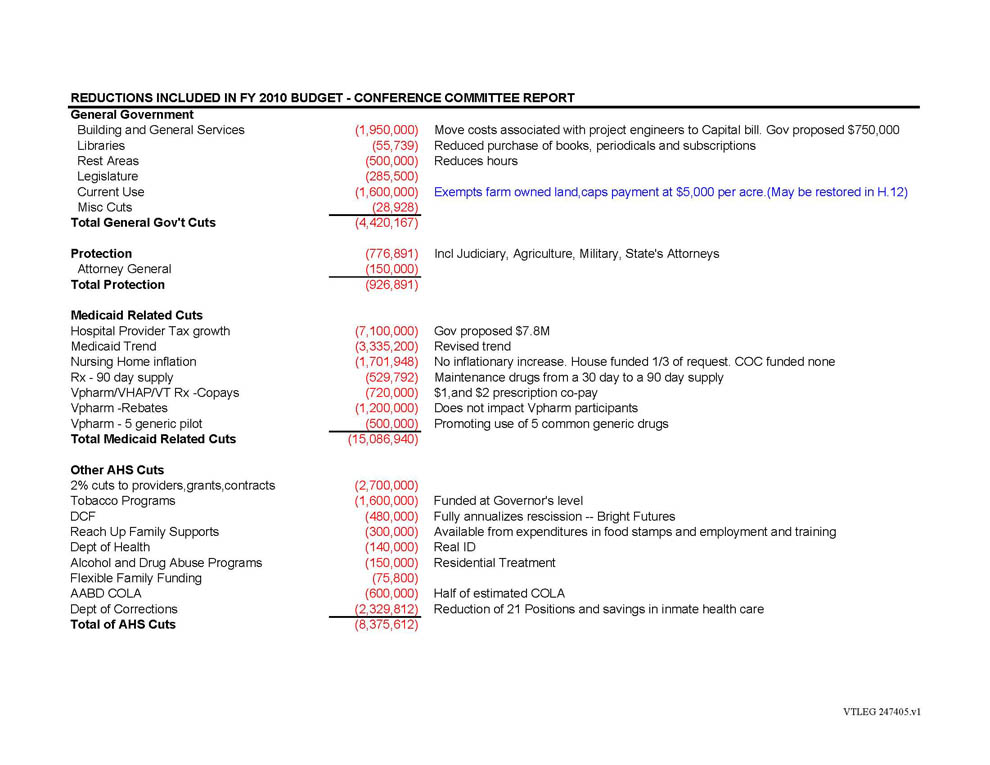
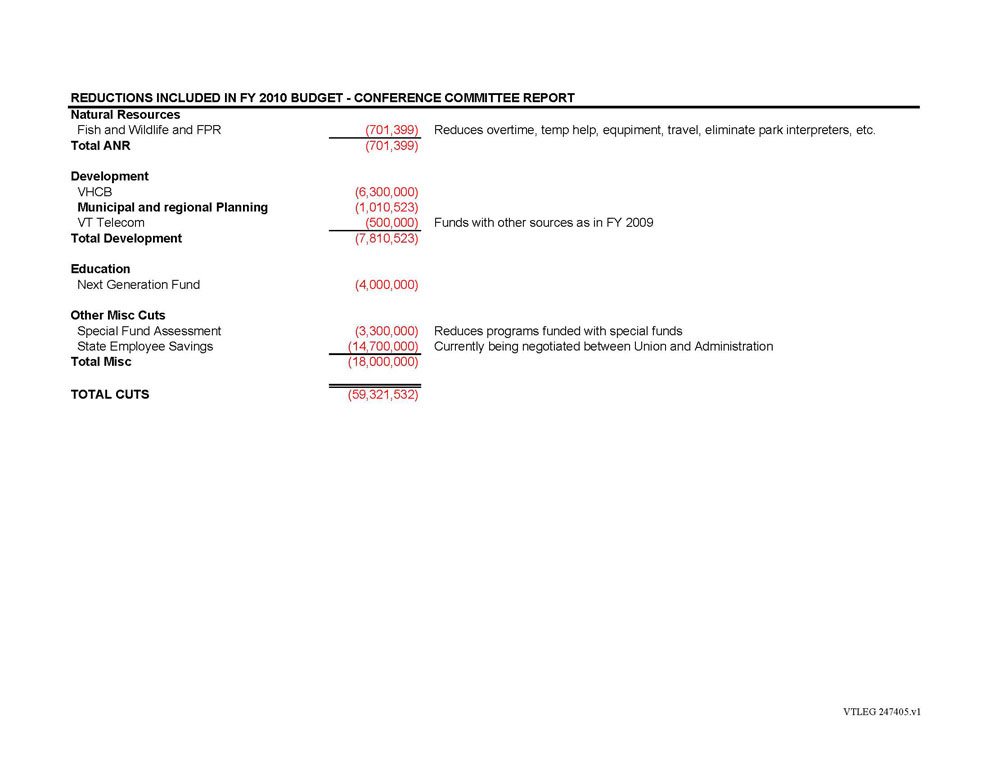
One of the nay votes was Rep. Zuckerman. I suspect he voted that way because he thought the tax cuts for upper marginal rates were unwarranted. I don’t know if he’ll caucus with the dems on an override, but it’s possible. Will be curious to see where the absentees come down.
It looks and sounds good, though, and do-less can always try to blame the demos for tax increases. It sounds great to those that do not look underneath his charades.
I really feel sad for those hundreds of people that will lose their jobs under this plan. I have been there before. When my job was “eliminated,” I lost everything: health care, pensions, everything. Most of these people, like me, will never be able to re-build again, especially in this wracked economy. They are, effectively, screwed, just like I was.
I’m new to this board, but I truly appreciate that a member of the assembly is giving thoughtful analysis. I agree with Rep. Zuckerman to a degree. I didn’t think the legislature had to lower marginal rates along with the change to cap gains and SALT deductions. And if they hadn’t, the revenue raised just from those two provisions would have taken into consideration the reality of just how big the shortfall could be by FY11. On balance, though, I don’t think the shift to education property taxes was all that onerous, and I do have reservations about how well the state’s current use program is serving all Vermonters.
Was it just me, or did VPR’s reporting from Montpelier today seem to suggest that the administration is dialing back its rhetoric about vetoing the budget bill? I could swear I heard a conciliatory tone.
a “tax expenditure” is a decision to take less money from certain taxpayers (it is also a term of art in economics that is universally accepted)
your insistence on the phrase “taking less” does not answer the question; they did not lower your rates (which would be for everyone), they offered a very specific benefit only for some taxpayers
and your notion that people accepting public assistance don’t pay into the system is deeply flawed; even if you are poor, you still but gas and pay the gas tax; when you buy things, you pay the sales tax; if you own a home but have lost your job and get some type of assistance, you still pay property taxes; and so on
in the end, your position is almost humorous in light of your earlier objection to “subsidies”
what other people & businesses get is a subsidy; what you get is not; do you not see the inconsistency & hypocricy in that?